Lake Norman is found in Huntersville, North Carolina.
The lake was actually created in 1963 by Duke Energy as a way to help with damming the Catawba River.
Today, the river is home to a large habitat of mammals, fish, birds, and even reptiles.
Knowing whether there are alligators in the lake will tell you what to expect if you plan on swimming in there are even living in the surrounding area.
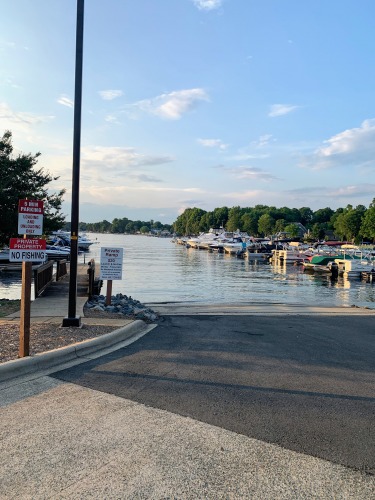
Contents
So… Are There Alligators in Lake Norman?
Alligators have the ability to thrive in any warm area, though they are native to the southeastern part of the United States.
Although most are found within Florida, Texas, and Louisiana, they have been known to be found throughout South Carolina and even North Carolina.
Prior to 2000, there weren’t many reports of alligators being found in Lake Norman.
However, it seems that they are native to the area now – and it’s not uncommon for there to be sightings of 5’ or even 6’ alligators within the lake.
Alligators have the ability to survive in North Carolina because of the warmer weather – and Lake Norman is stocked with plenty of fish that will keep them well-fed throughout the year.
Not all alligators in the area are a result of migration and relocating.
In some instances, the alligators are there because someone released one into the wild.
In North Carolina, it is not illegal to own a rare or wild species, such as an alligator.
Most cities and counties simply require that you obtain a permit.
When alligators are small, they’re cute and fun to look at in a terrarium.
However, as they get larger, it becomes too overwhelming for many – which is when they are released into the wild.
While this practice is illegal, it does happen from time to time.
As more alligators migrate and are released into the wild, they are able to procreate, which is why there are more alligators being seen over the past two decades than there were prior to this.
Alligator Species in Lake Norman
There are only two species of alligators found in the whole world – the Chinese Alligator and the American Alligator.
Since the Chinese Alligator isn’t native to the United States, the species you will encounter will be the American Alligator, also known as Alligator mississipiensis – which translates to “the lizard of the Mississippi River.
The American Alligator commonly referred to simply as “gator” can be found in freshwater, though it will occasionally go into brackish water.
It highly depends on the salinity of the water.
They don’t have salt-secreting glands like crocodiles, so anything too high in salt will not be acceptable.
Most alligators will prefer swamps and marshes.
It gives them places to hide and the long grasses and crannies around the mangroves are ideal for laying eggs during mating season.
When a swamp or marsh isn’t around, they will call a river or a lake home – and that’s why you’ll see alligators in both the Catawba River and Lake Norman.
Alligators will create refuge with what’s commonly known as “alligator holes” that they create with their snouts and tails.
When these are taken by other animals, they’ll cross dry land in search of another body of water.
As such, it’s normal to see some level of migration.
The American Alligator isn’t one to attack solely for the sake of attacking.
It usually needs a reason, such as it feels as though it needs to protect itself or its young.
Though, there have been instances of attacks simply because it is bored or hungry.
You’ll want to make sure that if you do see an alligator around Lake Norman that you leave it be – and give it a wide berth so it doesn’t see you as a threat.
If you haven’t seen an alligator (or a crocodile) and you actually want to, there are sanctuaries and zoos where you can see them in captivity.
Throughout the Lake Norman area, you’ll find them in such venues as:
Is It Safe to Swim in Lake Norman?
Swimming, boating, and other water-based activities in Lake Norman are safe – and the area is quick to advertise all of the events that are centered around the Lake, too.
Many people across the area visit Lake Norman because of the activities – it is only 20 minutes from Charlotte and two hours from Asheville.
Beyond swimming, some of the activities you’ll find include:
- Canoeing
- Kayaking
- Fishing
There are various signs in the water to tell you of hazards.
These are important for you to pay attention to regardless of whether you are swimming or you are on a boat.
And when you are on a boat, you’ll want to wear a life jacket in case you fall overboard.
The lake can be extremely deep in many areas.
There have been instances where sewage has spilled into the lake, leading to an unsanitary water system as well as high areas of bacteria.
When this happens, it is highly publicized and the lake will be closed to swimming so that no one gets sick.
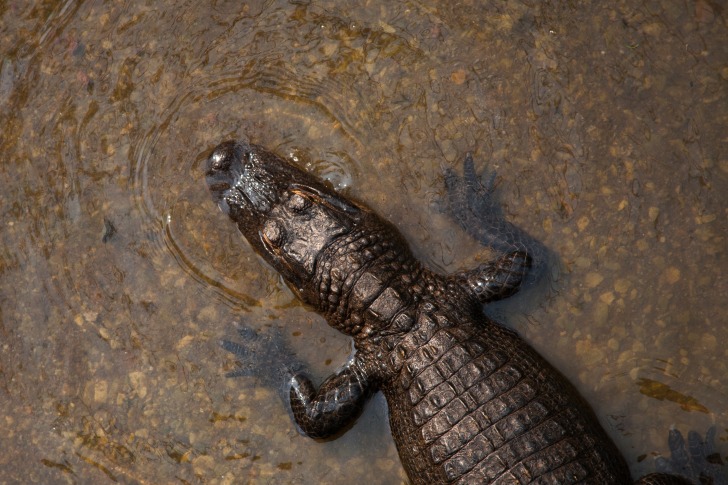
Interesting Alligator Facts in Lake Norman
There are three towns that surround Lake Norman – Cornelius, Davidson, and Huntersville.
As such, you may hear about the occasional alligator being caught in any of these three areas.
When you hear that, you can assume that there’s also a greater chance for an alligator to be found in the lake.
Some of the deepest points of the lake are over 100 feet deep, but the average depth is 33 feet.
Typically, alligators aren’t going to swim out to the deeper water.
Instead, they’ll focus on over 500 miles of coastline around the lake.
The alligators prefer still-moving water, so if you’re swimming where there’s a lot of boat activity, you’re less likely to encounter any alligators.
2000 was the first report of alligators to be found in Lake Norman.
By the end of the year, there were at least two different alligators spotted – and a video of a 5’ alligator emerged.
The alligators were removed from the lake by wildlife control officers.
Lake Norman typically boasts that there are no gators or harmful snakes in the water – and that’s because the wildlife officers take close inventory of the biodiversity within the area.
Often, there are dead logs that will float on the water.
It leads to people calling that there’s an alligator in the lake – only to learn that it is a limb that broke off into the lake after the latest storm.
Alligators vs. Crocodiles
Alligators and crocodiles are both parts of the Order Crocodilia – and within that, there are approximately 23 species.
The only two species you’ll find in the U.S. include the American Alligator and the American Crocodile.
The American Alligator is native to some parts of North Carolina, but the American Crocodile is only found in southern Florida as well as parts of the Caribbean.
There are plenty of ways for you to tell the two reptiles apart once you know what to look for.
Alligators are black/gray in color and have rounded or U-shaped snouts.
They have stubby legs and an overbite. With their mouths closed, they don’t show off their teeth.
Crocodiles are green/brown in color and have more pointed snouts.
Their legs are longer, and they will show some of their top teeth even when their mouths are closed.
American Alligators can get quite large, too.
Adult males may reach lengths of 14 to 16 feet while adult females typically won’t get longer than 10 feet.
3 Safety Tips for Swimming in Alligator-Infested Waters
Regardless of where you are, it is rare to be attacked by an alligator.
However, if you are going to swim in alligator-infested waters, you are definitely increasing your odds.
As such, you need to know what to expect – and there are some safety tips that you can follow.
- Fight. If you are going to go into water where there are alligators, there is the likelihood that you could be attacked. Know how to fight and what defenses to use. Run if you can do so. If the gator manages to grab hold, hit it on the top of the snout where it is most sensitive rather than trying to pry its jaws open.
- Avoid being rolled. Gators will roll their prey so that it becomes unconscious and is, thus, easier to start breaking off pieces to eat. Do whatever is necessary to avoid letting the gator roll you – including gouging the eyes.
- Never swim alone. You should never enter the water alone. Instead, make sure that there are others with you to help monitor the water and offer assistance when necessary.
Summary
Alligators are native to North Carolina, and over the past few years, many have been migrating slightly north.
As such, it is entirely possible that you will find alligators in Lake Norman.
The weather never gets too cold, allowing the alligators to hibernate during the winter and survive year after year.
As alligators continue to survive year after year, it also means that you’ll see larger alligators.
Some areas of North Carolina where it gets really cold may only see baby alligators because they aren’t able to survive long enough to become full adults.
You’ll want to exercise caution around Lake Norman as well as the entire area because alligators can thrive.
Additionally, many will live in groups – so where there is one alligator, there is likely to be more.
Pay attention to warnings that are issued by the city as well as parks and recreation.
Frequently Asked Questions
Can alligators survive in cold water?
Alligators are ectothermic, so they depend on a heated environment to survive.
Once temperatures drop below 55, alligators will struggle with not only remaining active but even with digesting their food.
As such, as the temperatures drop around Lake Norman in the winter, you’re less likely to encounter alligators.
How many alligator deaths occur a year?
In North Carolina, there are no alligator deaths.
Most occur in Florida and throughout the southeastern part of the US.
Between 1948 and 2021, the Florida Fish and Wildlife Conservation Commission identified that there were approximately two dozen deaths out of 442 unprovoked attacks.
Where is the most alligator-infested lake in the US?
It has been estimated that Lake Jesup in Florida is the most alligator-infested lake in all of the United States.
Although alligator attacks are rare, there are approximately 13,000 gators calling the body of water home.
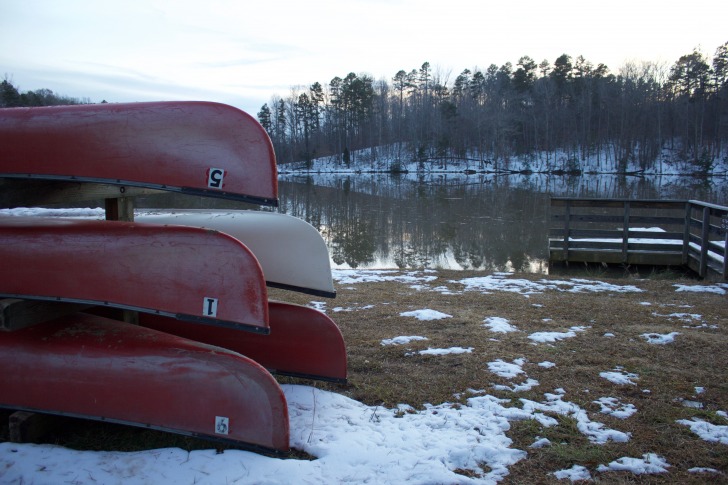
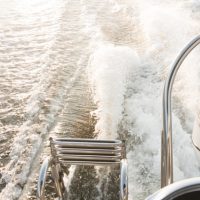
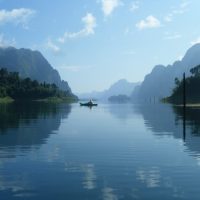

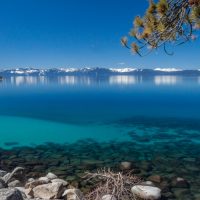

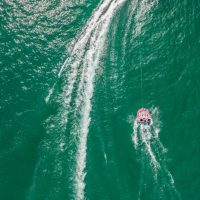





It is important to be aware of the presence of alligators in Lake Norman and exercise caution when swimming or participating in water activities in the area.
Alligators have been spotted in Lake Norman, so exercise caution when swimming or living in the surrounding area.
Yes, there are alligators in Lake Norman.